Picturing Coexistence
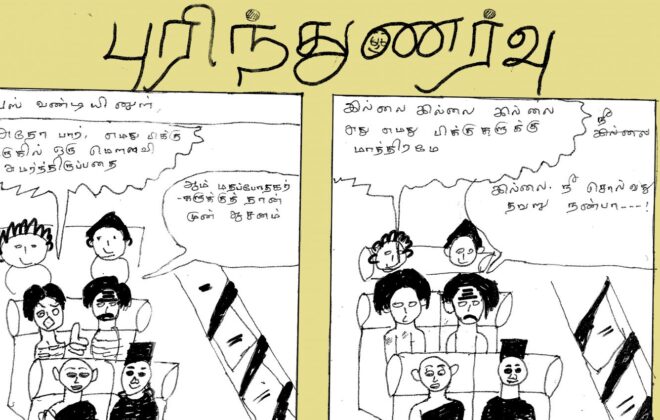
Learning about the Other through grassroots comics
Comics are used as a means of creating a space for individuals to reflect on, articulate and narrate their (sometimes inexpressible) experiences, prejudices or understanding of coexistence and the ‘other’. They are also used to facilitate talking to one another across ethnic, religious and linguistic divides through different stories. Such stories or first-hand expereinces, documented in the form of comics, are powerful visual tools of change where individuals become both storytellers and agents who help others recall and critically evaluate their own experiences of suspicion, insecurity and harmony.
The comics in this gallery are introspective, self-critical and reflect multiple experiences of discrimination and coexistence. A common theme that cuts across most of them is discrimination due to ignorance about the beliefs and value systems of members of other religious groups and false assumptions that are drawn as a result. Conversely, another overarching theme expressed is that coexistence is the norm and not an exception, and communities most often do live in harmony which is disturbed by external actors.
Culture Shock : Fathima studies hard and obtains a university degree. When she attends a job interview, she is told that she can be given the job if she agrees not to wear the head-scarf to work. She says that it is her ethnic identity and she cannot give it up. She does not get the job and sadly wonders what she has done wrong and why people discriminate based on ethnic and religious differences. Story and art by F. Nufla Nizahir, Galle.
Who Doesn’t Know the Way?: Two friends are travelling on a bus. They do not know where their stop is, but they are not afraid because they see other members of their ethnic community in the bus. One friend asks a passenger from her community for directions. The passenger laughs at her and asks her why she got onto the bus without knowing the way. The two friends feel betrayed by their own community and wonder what to do. One man calls to them and tells them that he will show them the way. The friends agree that even though the man who helped them belongs to another ethnic group, he is a good person. Story and art by Fawza, Galle.
Unity that Emerged from a Fire: Two different kinds of birds argue about their right to live in a forest. The birds who live in the forest are suspicious of the immigrant birds and say that they do not want them to settle there. The immigrant birds say that they have a right to live anywhere they want. They start fighting among themselves. While this conflict goes on, there is a fire and the whole forest is burnt down. The birds get together on one tree and realise how meaningless it was for them to fight and kill each other over the forest. Story and art by Jayaweera, Galle.
A Cunning Man: A man sees a Muslim boy hitting a Sinhalese boy on the road. He says “I should go tell this to my master and chase Muslims away from this country.” He runs towards the village shouting, “Our religion is going to be destroyed. Is there no one who will challenge this?” The villagers believe him and rush with knives to the Muslim boy’s house. Another man, who had witnessed what happened, explains that the Muslim boy is not at fault. The villagers apologise for being hasty and the troublemaker leaves in shame. Story and art by Rishad, Galle.
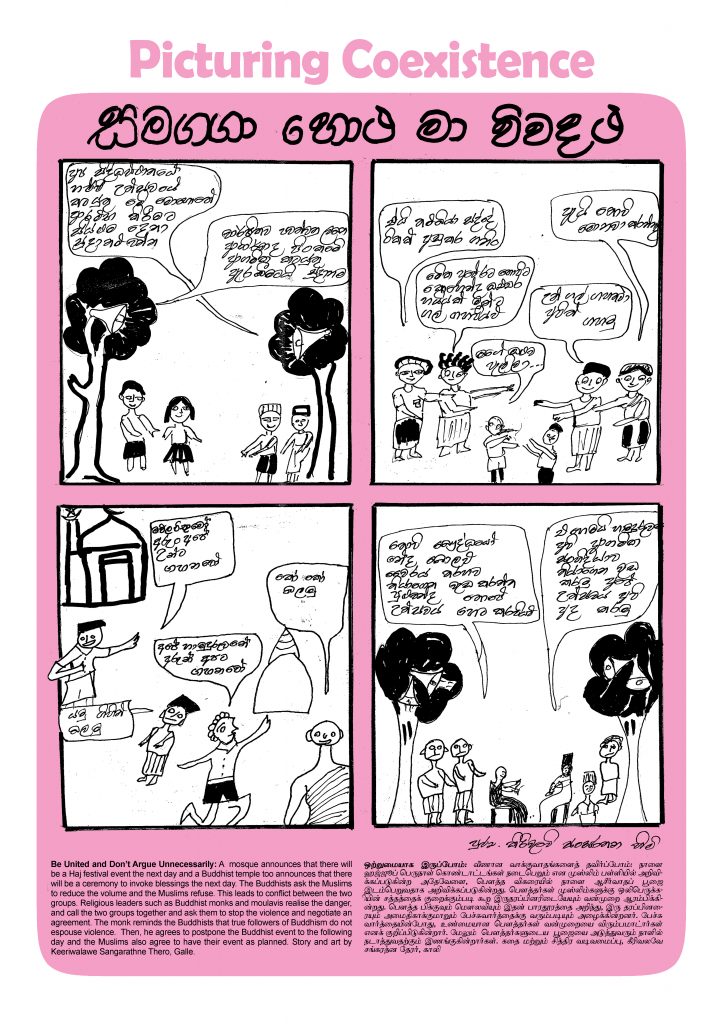
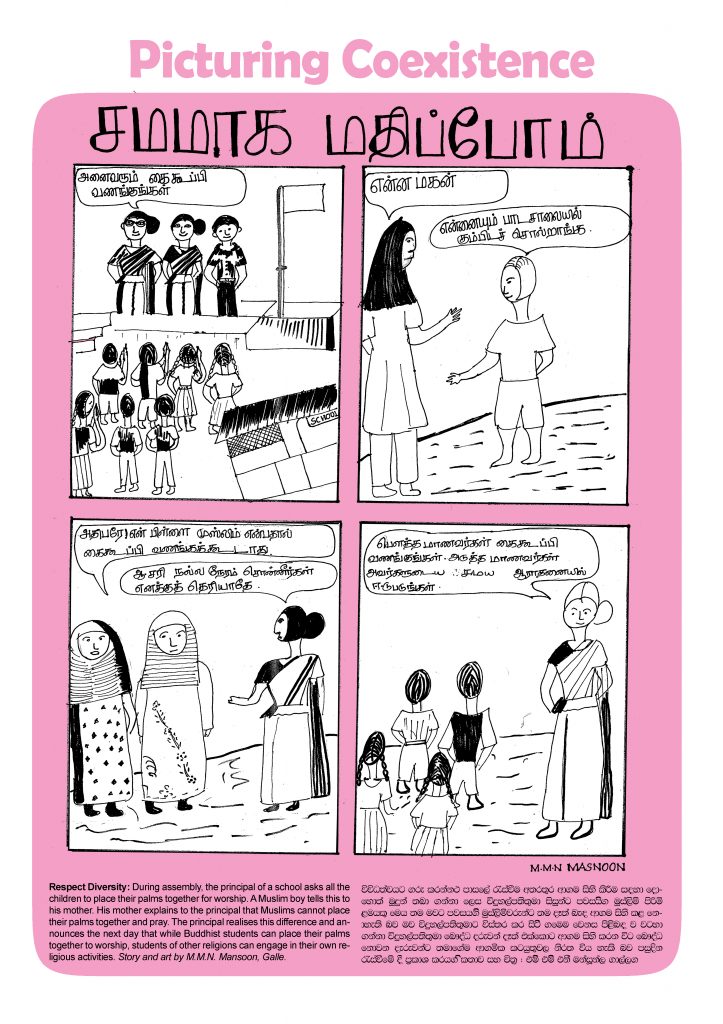
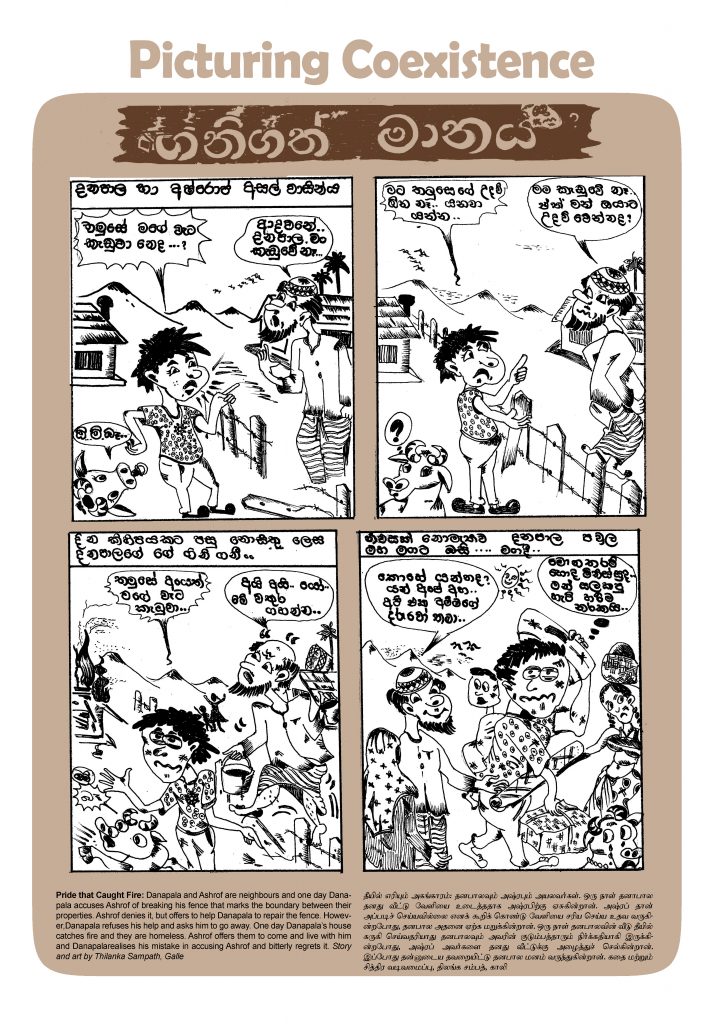
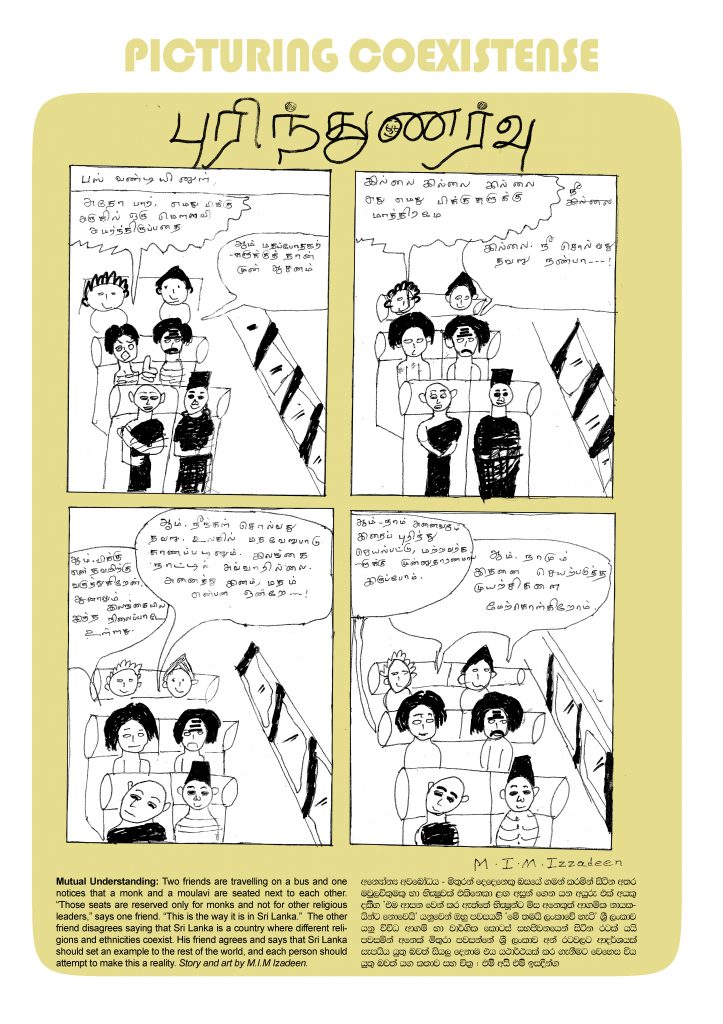
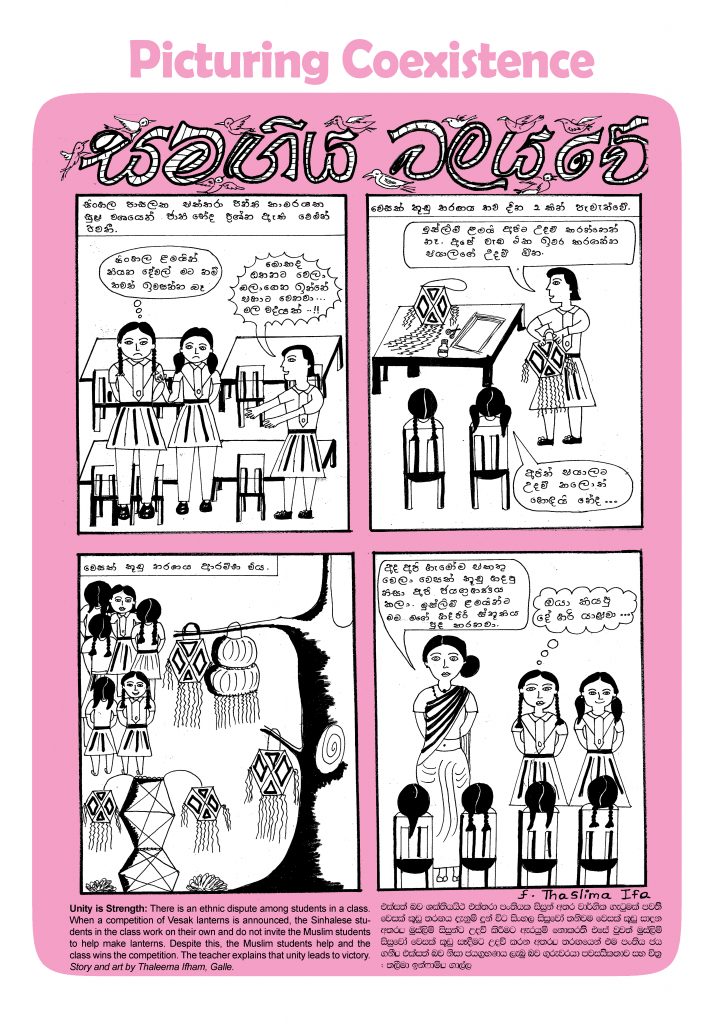
These comics were produced by the International Centre for Ethnic Studies in partnership with World Comics India (WCI) as part of a larger effort to promote inter-religious harmony in Sri Lanka. A publication of the comics can be accessed on the ICES website



